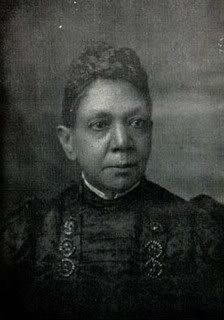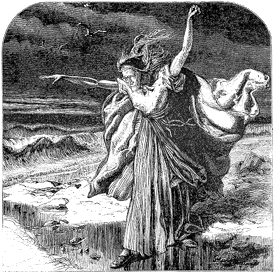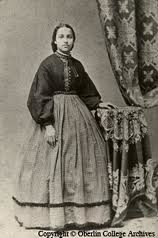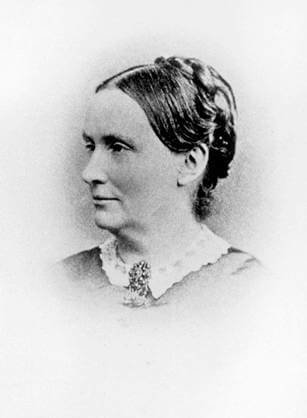Women in Medicine: Second African American Female Doctor
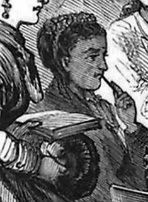 In 1867, Rebecca Cole became the second African American woman to receive an M.D. degree in the United States. Despite incredible sexism and racism, Cole persevered as a doctor, becoming a tireless advocate for medical rights for the poor, particularly for black Americans who were mostly ignored by the white medical establishment.
In 1867, Rebecca Cole became the second African American woman to receive an M.D. degree in the United States. Despite incredible sexism and racism, Cole persevered as a doctor, becoming a tireless advocate for medical rights for the poor, particularly for black Americans who were mostly ignored by the white medical establishment.
Image: Drawing of Dr. Rebecca Cole
The second of five children, Rebecca Cole was born on March 16, 1846 in Philadelphia, Pennsylvania. Her parents’ names are not known. Rebecca and her siblings received excellent educations, allowing them to obtain work other than the domestic service or manual labor in which most African Americans of that time were employed. Cole excelled at the prestigious Institute for Colored Youth in Philadelphia, a Quaker high school which strived to train black youth to become teachers and scholars.
The Institute for Colored Youth was considered one of the more rigorous of the black schools of the time and its curriculum included Latin, Greek and mathematics. As a student Cole received a ten dollar award for academic excellence, good conduct and attendance. This was quite a sum in those days and served as a testament to her intellect and dedication.
During the Civil War, Cole entered the Woman’s Medical College of Pennsylvania, which was founded by Quaker abolitionists and temperance reformers in 1850. There she studied under the supervision of Ann Preston, the first woman dean of an American medical school. By enrolling in medical school at this early time, Cole was truly a pioneer. Her senior thesis was titled “The Eye and Its Appendages.”
In 1867, Rebecca Cole graduated, becoming the second African American woman to receive a medical degree in the United States. (Rebecca Lee Crumpler had graduated from the New England Female Medical College three years earlier.) Cole was able to overcome racial and gender barriers to medical education by training in all-female institutions run by women who had been part of the first generation of female physicians.
Medical Career
To gain clinical experience, Cole moved to New York City, where she took a job as resident physician at the New York Infirmary for Women and Children in New York City, which was run and owned by women. There she worked with the first white American woman to receive a medical degree, Dr. Elizabeth Blackwell, her sister Dr. Emily Blackwell and Marie Zakrzewska, a German-American doctor. There Cole worked as a sanitary visitor, a traveling physician who visited families in their homes in slum neighborhoods and instructed them in family hygiene, and prenatal and infant care.
In her autobiography, Dr. Elizabeth Blackwell commented on Rebecca Cole’s valuable clinical skills:
In addition to the usual departments of hospital and dispensary practice, which included the visiting of poor patients at their own homes, we established a sanitary visitor. This post was filled by one of our assistant physicians, whose special duty it was to give simple, practical instruction to poor mothers on the management of infants and the preservation of the health of their families. An intelligent young coloured physician, Dr. Cole… carried on this work with tact and care. Experience of its results serve to show that the establishment of such a department would be a valuable addition to every hospital.
This was a demanding job, considering the rising population of New York City at the time, and it could have been easily done by someone with much less education and skill than Cole. Whether she was relegated to this role or chose this service herself is unclear. However, Cole remained in this position for several years, and it appears that the social medicine aspect of this service appealed to Cole’s desire to make health care available to everyone.
In the early 1870s Cole practiced medicine briefly in Columbia, South Carolina before taking a position as superintendent of the Government House for Children and Old Women in Washington, DC. She then returned to her native Philadelphia, where she furthered her commitment to social activism by serving as superintendent of a shelter for the homeless. She also established a private medical practice.
Cole also became active in African American Women’s Clubs, which provided black women with an outlet for social, philanthropic and political activity at a time when they were doubly ostracized by society – for being black and for being women. In 1876 she served on the Ladies’ Centennial Committee of Philadelphia which was planning the celebration of the 100th anniversary of the Declaration of Independence. When asked to form a separate Colored Ladies Subcommittee, Cole wrote to the local newspaper declaring that her group would “work in common with American women, not as ‘colored Centennial women.'”
According to an article written by Dr. Charlotte Abbey and published in a book entitled A Child Welfare Symposium (1915), Dr. Rebecca Cole partnered with Dr. Abbey to establish the Woman’s Directory in Philadelphia in 1894. According to the above referenced article, “The majority of unmarried mothers who apply to the directory for help belong to the domestic service or factory class.” The Directory’s aim was to educate these mothers with the hope that they could keep their children and to refer them to employment situations that supported this goal.
They offered free medical and legal services to these destitute women, and according to its charter, programs aiding in “the prevention of feticide and infanticide and the evils connected with baby farming by rendering assistance to women in cases of approaching maternity and of desertion or abandonment of mothers and by aiding magistrates and others entrusted with police powers in preventing or punishing [such] crimes.”
In January 1899, Dr. Cole was appointed superintendent of a home that was run by the Association for the Relief of Destitute Colored Women and Children in Washington, DC. A subsequent annual report stated that:
Dr. Cole herself has more than fulfilled the expectations of her friends. With a clear and comprehensive view of her whole field of action, she has carried out her plans with the good sense and vigor which are a part of her character, while her cheerful optimism, her determination to see the best in every situation and in every individual, have created around her an atmosphere of sunshine that adds to the happiness and well being of every member of the large family.
Dr. Cole’s work with the poor led to a well publicized dispute with prominent African American scholar W.E.B. Du Bois about the research for his 1899 book, The Philadelphia Negro. In 1901 Du Bois spoke at a woman’s meeting and discussed how he believed blacks were dying of consumption in large numbers because of their ignorance of proper hygiene. Cole wrote a rebuttal, stating that statistical errors and the testimony of slum landlords had led Du Bois to a flawed conclusion and that the individuals in the slums were not entirely to blame for the high death rate.
Following in Her Path
Until the mid-nineteenth century, American medicine was essentially unregulated. Doctors underwent less training than ministers and did not need a license to practice. Women benefited from the ease with which medical schools were given charters – between 1860 and 1900, nineteen medical schools for women were founded. During this same period, the number of all women physicians rose from fewer than 200 to more than 7000.
In 1890, 909 African American physicians were in practice, of these 115 were women. These pioneers comprised one of the earliest groups of African American professional women. Many of these women worked outside their private practices in helping populations of women and children and blacks barred from segregated facilities. Often denied privileges at existing institutions, these trailblazers established an array of healthcare institutions. In 1881 Susan McKinney Steward co-founded a black hospital, the Brooklyn Women’s Homeopathic Hospital and Dispensary. Eight years later, Caroline Still Wiley Anderson co-founded the Berean Manual Training and Industrial School in Philadelphia.
After years of treating patients at her home, Matilda Arabella Evans established the first African American hospital in Columbia, South Carolina. Lucy Hughes Brown and Sarah Garland Jones founded black hospitals and training schools in Charleston, South Carolina, and Richmond, Virginia. The first woman to practice medicine in Alabama, Hallie Tanner Dillon Johnson, established a dispensary and nurses’ training school while serving as resident physician at Tuskegee Institute.
By the last decades of Cole’s career, however, the number of African American women physicians declined dramatically. The 1920 U.S. census lists only sixty-five black women doctors. The professionalization and standardization of medicine further marginalized blacks and women, who were generally excluded from key organizations. Coeducation resulted in the closure of scores of women’s schools, further curbing the number of women physicians and dismantling much of the infrastructure that had supported late-nineteenth-century women doctors.
Dr. Rebecca J. Cole died on August 14, 1922. Although Cole practiced medicine for fifty years, little is known about her personal life, and no images of her remain. Her career and the contributions of the first wave of black women physicians illustrate that had opportunities been available, black women might have further advanced the practice of medicine with their community-based approach to health care.
SOURCES
Dr. Rebecca J. Cole
Wikipedia: Rebecca Cole
BlackPast.org: Rebecca J. Cole
W.E.B. DuBois Institute: Rebecca Cole
Gale Contemporary Black Biography: Rebecca J. Cole

